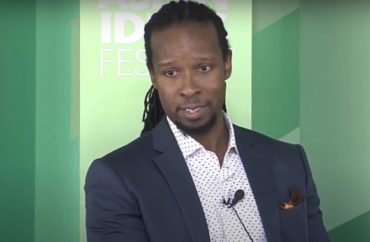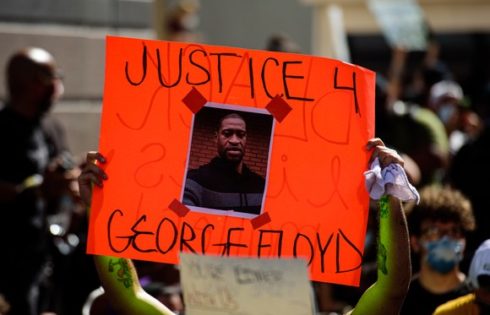
ANALYSIS: The Boston University center produces little, except disparity
Ibram Kendi’s Center for Antiracist Research is racist – according to the founder’s own definition.
The College Fix analyzed the remaining team at his Boston University center, which has shrunk since last year due to budgetary problems.
The center is currently under investigation following accusations of mismanagement and poor leadership. So far, an audit “found no issues with how CAR’s finances were handled, showing that its expenditures were appropriately charged to their respective grant and gift accounts,” the school previously announced.
However, Kendi often made large promises and failed to deliver on them. The Fix also reported last year that Kendi had not written an academic paper in four years.
The Fix previously found the layoffs primarily affected black and Hispanic employees.
“A racist policy is any measure that produces or sustains racial inequity between racial groups,” according to Kendi.
His own definition applies to his think tank.
“By policy, I mean written and unwritten laws, rules, procedures, processes, regulations, and guidelines that govern people,” he wrote in “How to be an Antiracist.”
“There is no such thing as a nonracist or race-neutral policy,” Kendi wrote. “Every policy in every institution in every community in every nation is producing or sustaining either racial inequity or equity between racial groups.”
But according to The Fix analysis of his hiring, his center is racist against whites, Native Americans, and Hispanics.
Kendi’s new advisory board appears to have, at most, one white female. There were no identifiable Native Americans, and there was only one Hispanic board member. The Fix used their profiles, names, and photos to tally the race and sex.
However, according to Kendi, there should be an exact distribution, even just at his institution with its small number, of race and sex.
The lack of proportional representation for white members can likely be explained by Kendi’s support for “positive discrimination.” But it does not explain the lack of Native American and Hispanic staff and advisors.
MORE: ‘Most organizations,’ are racist, Kendi says
“If discrimination is creating equity, then it is antiracist,” he wrote in “How to be an Antiracist. “If discrimination is creating inequity, then it is racist.”
He wrote further:
I do not think an organization should hire an incapable candidate solely because of that candidate’s race, which is how positive discrimination is sometimes defined. But I do think organizations and societies should support practices that seek to remedy inequities…
Kendi’s definition leaves no other explanation for disparities than racism.
It does not suggest that when disparities exist, racism could be at play, but rather, the policy and institution must be racist.
Yet, his advisory board is 66 percent black, even though black Americans are only 13 percent of the population.
The Fix did not identify any Native Americans on the board, even though they are three percent of the population.
Hispanic males are also largely shut out of the center, both on the advisory board and among his general staff.
Among the 21 individuals on his advisory board and staff, The Fix identified only one person who appears to be a Hispanic male. This works out to about five percent of his staff.
By contrast, Hispanic males are about 10 percent of the U.S. population.
Kendi’s own definition leaves no room for an obvious explanation – that black Americans, particularly academics, would be more inclined to want to work at an “antiracist,” advocacy-driven organization.
Nor does his definition allow for other reasons, such as personal choices, the racial makeup of a particular area, and availability of qualified employees. He tells a story in his book about being seven years-old and questioning why there was only one black teacher at the Lutheran school his parents were looking at.
But in 1990, when he visited the school, there were only 118 black citizens, out of 9,000 total, in Malverne, New York.
University spokesperson Colin Riley and the center’s media representative Tami Nguyen did not respond to two emailed requests for comment sent in the past two weeks. The Fix asked for verification on the race and sex data, if the university planned to investigate the disparities, and for an update on the other inquiries into the center’s budget.
An unnamed spokesperson recently commented to The New York Times Magazine about Kendi’s center, however. “In hindsight, and with the fuller knowledge of the organizational problems that arose, the university should have done more to insist on additional oversight.”
‘One would think that Dr. Kendi would be more sensitive’ to racial makeup
A spokesman for Color Us United criticized Kendi’s ideology.
“For someone whose profession is addressing racism in a very public manner, one would think that Dr. Kendi would be more sensitive to the delicate balance of racial demographics on his own advisory board,” Mike Markham told The Fix via email.
He stated further:
What is his explanation for the underrepresentation of Hispanic persons or the cost of a statistical overrepresentation of Asian Americans? And, by his worldview, what is the cost to non-Black minorities for having two thirds of his advisory board made up of Black Amercians when that demographic represents only an estimated 13.6% of the population? Or is the real truth that the antiracism movement’s fascination with skin color and disregard for the essence and character of the individual, accurately represents its nonsensical and flawed nature?
Racial disparities, as Kendi argues, are not a clear proof of racism, according to Markham.
“This line of thinking is far too simplistic and on its face, racism cannot necessarily be proven by the mere existence of racial disparities,” he said. “Factors like culture, work ethic, geography, and even interest levels in certain pursuits must be taken into account to have any serious discussion along these lines.”
MORE: Kendi alarmed by daughter’s ‘blue-eyed white doll’
IMAGE: Aspen Institute/YouTube
Like The College Fix on Facebook / Follow us on Twitter






Please join the conversation about our stories on Facebook, Twitter, Instagram, Reddit, MeWe, Rumble, Gab, Minds and Gettr.